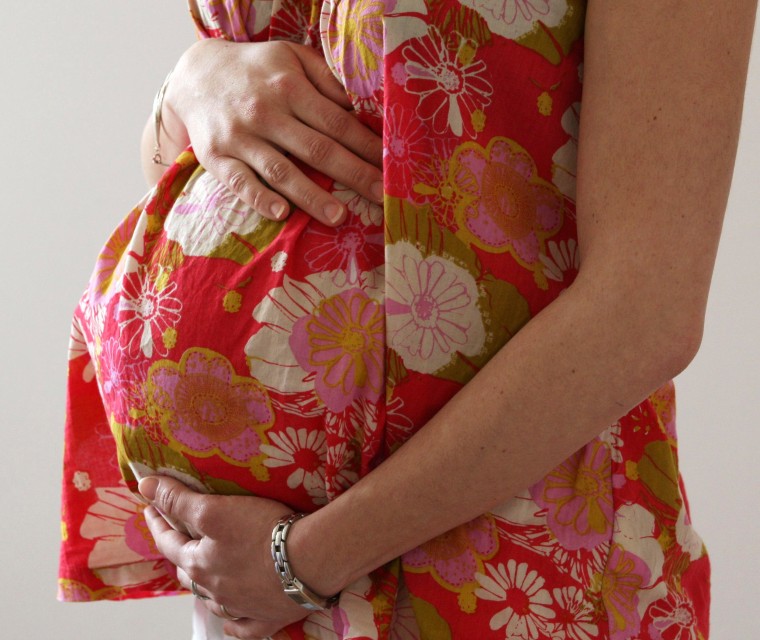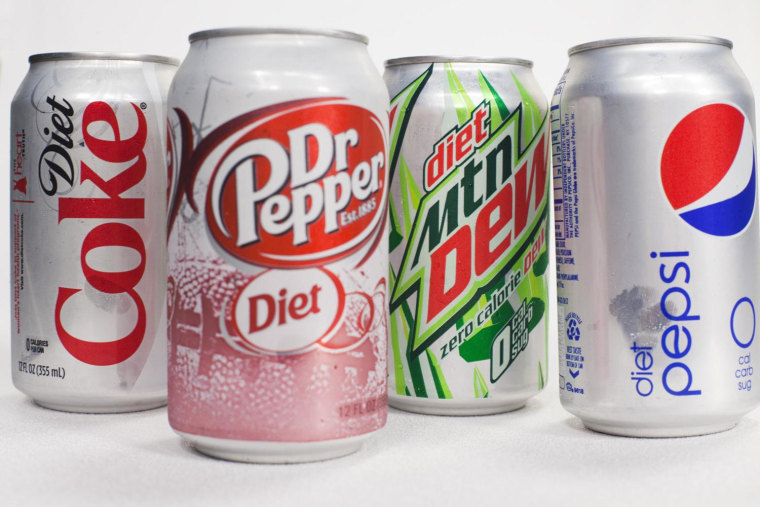Babies whose moms drank diet drinks every day while pregnant are more likely to be overweight, researchers reported on Monday.
It’s not clear why — and the study doesn’t show that the diet drinks cause the babies to gain too much weight.
But the study adds another piece to a growing picture that suggests what happens during pregnancy can have lifelong effects on the babies.

The study — of more than 3,000 women and their babies — showed that the children of women who drank diet drinks every day during pregnancy were twice as likely to be overweight when they were a year old, as compared to babies of women who drank no artificially sweetened drinks.
"To our knowledge, our results provide the first human evidence that artificial sweetener consumption during pregnancy may increase the risk of early childhood overweight,” Meghan Azad, of the Children’s Hospital research Institute of Manitoba, and colleagues wrote in their report, published in the journal of the American Medical Association’s JAMA Pediatrics.
Related: How Diet Drinks Could Make You Fat
“Given the current epidemic of childhood obesity and the widespread consumption of artificial sweeteners, further research is warranted is warranted to confirm our findings and investigate the underlying biological mechanisms, with the ultimate goal of informing evidence-based dietary recommendations for pregnant women.”
Researchers know that too much weight gain during pregnancy can make babies overweight, also. Doctors recommend that pregnant women gain just enough, but not too much weight, while they’re pregnant, and they say healthy diet and moderate exercise can help.
Women who rely on artificial sweeteners may continue to use them while pregnant to try to keep their weight down. In Azad’s study, close to 30 percent of the pregnant women said they drank artificially sweetened drinks while pregnant, and about 5 percent said they drank them daily.
“Our study confirms previous research showing that artificially sweetened beverage consumption is associated with obesity, diabetes, smoking, and poor diet quality."
And about 5 percent of the babies were overweight at the age of 1. The women who drank diet drinks every day were twice as likely to have an overweight baby.
The diet drinkers also often were overweight themselves, the researchers found, and many of them did not score well on a healthy eating index. But the effects on the babies still correlated with diet drinks even when these factors were accounted for, the researchers said.
“Our study confirms previous research showing that artificially sweetened beverage consumption is associated with obesity, diabetes, smoking, and poor diet quality, all of which are established maternal risk factors for obesity in offspring,” they wrote.
Susan Groth, an associate professor at the University of Rochester School of Nursing, said the study was well done but she says there is not a clear message for any individual woman.
“The message is you need to be careful about drinking too much of these artificially sweetened beverages because it could affect your child down the road,” Groth, who studies weight gain during pregnancy, told NBC News.
“It does give us evidence that maybe there is something going on that we should be paying attention to,” added Groth, who was not involved in the study.
Studies on whether diet drinks help keep weight off often contradict one another, with some finding that people who drink lots of diet drinks are more likely to be obese, with others finding they are better than sugary drinks.
But many American women do tend to gain too much weight during pregnancy, and more studies are showing that has bad consequences for the babies.
What’s missing, says Groth, are details on what the babies were fed once they started eating solid food. “And we don’t know what mom’s eating behavior was, other than the soft drinks,” she added.
So the answer is, as it is so often: more study is needed.

